If Kennan were to raise his head
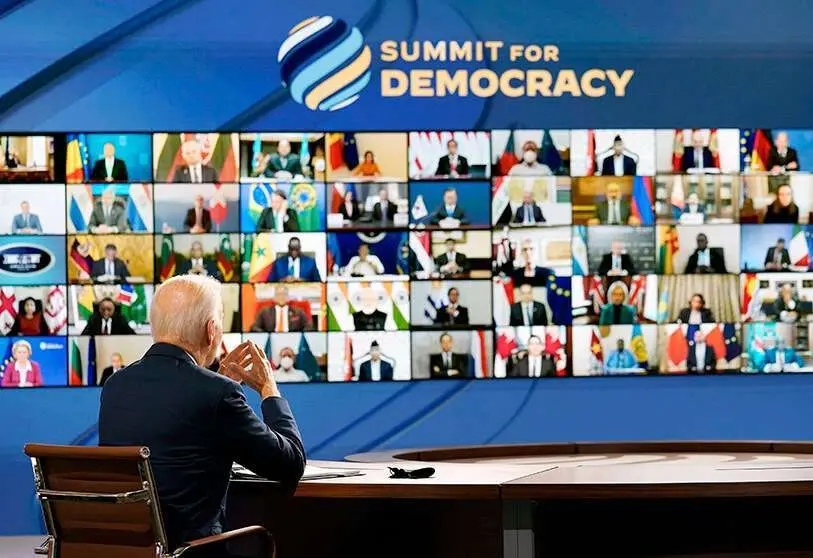
Biden's idealistic impulse leads him to divide the world between "democrats" and "autocrats". The realist one, to keep the "autocrats" out of China's orbit. Washington and Beijing are not in a Cold War - not exactly - but the lack of conceptual precision and clear red lines, as then legendary diplomat George F. Kennan drew between two rival superpowers, is dangerous for the world.
About half the world was invited to the 'Summit for Democracy' on 9-10 December. The virtual summit to defend the intrinsic value of democracy is the Biden administration's most ambitious foreign policy gamble to date. Almost more important is who was not invited: Russia and especially China, whose ambassadors have already signed a joint letter complaining about the summit's "Cold War mentality" (Putin and Xi Jinping met virtually last week against the backdrop of Ukraine and Taiwan).
Sticking to the 'Summit for Democracy', the invitational criteria has given a lot to talk about. Weak democracies - but strategically important to the US in its struggle with China - such as the Philippines and Pakistan (which declined out of deference to Beijing) were invited. Other nations were excluded, such as Bolivia or, for more obvious reasons, Venezuela, Nicaragua and Haiti.

The most alarming absence was that of El Salvador, Guatemala and Honduras. El Salvador - alienated from the US by the ideological prejudices of Biden's staffers towards Central America, some say, and Bukele's democratic modesty, others say - seems to have no choice but to dance with China. As for Honduras, there is speculation that Tegucigalpa may be about to abandon Taipei in favour of Beijing. However, if the newly elected Xiomara Castro is cautious, she will wait a few months to fulfil her campaign promise in order to shore up her transition.
By far the biggest bombshell during the summit itself was Managua's severing of relations with Taipei to recognise Beijing, which was quick to announce assistance for COVID-19 to the Ortega-Murillo family to reciprocate. A Chinese message, timing and all, for inviting Taiwan to the summit. A diplomatic setback for Biden in Washington's always sensitive "backyard".
The vice-president of the Council of the Americas think tank complained that the US had lumped Nicaragua together with Guatemala, El Salvador and Honduras. "The administration does not have a very nuanced policy... these are countries with deep problems that the US should be working with on issues close to our agenda like immigration... is Guatemala less democratic than Pakistan? Fair question. A Harvard Kennedy School professor asked: "If democracy is our main goal, should we side with Saudi Arabia and Egypt? If containing China is our real purpose, can we be choosy about who we choose to talk to?
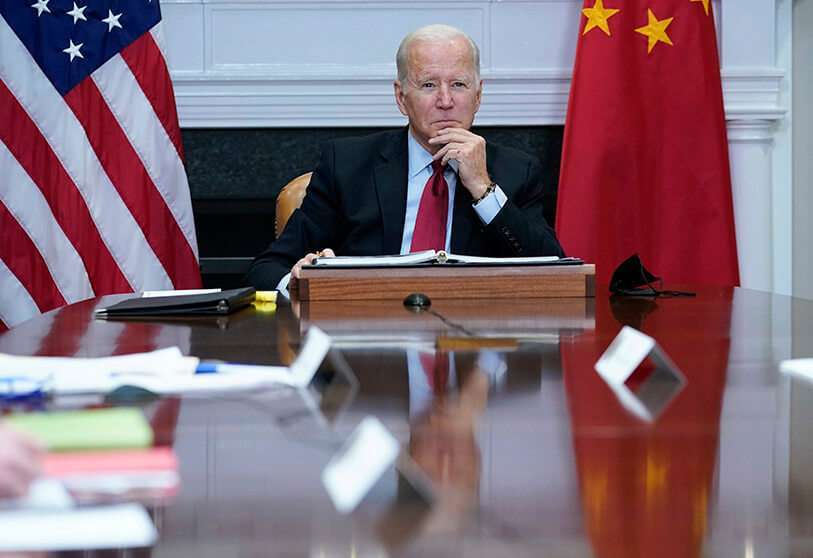
The United States, the hegemon, takes a step backwards in the hemisphere. Some readers - the less US-friendly among the Ibero-American non-left who are accustomed to reading these lines - will not bat an eyelid. But they must be fully aware that along with the US, Latin America's Westernness is going backwards. Whether this Westernness is such, or even whether it is desirable, is a matter for another time. Others more learned have already done so. But the vacuum will be filled and the candidates with real options to do so 'are not pretty'.
In anticipation of the summit, the Chinese Foreign Ministry published 'The State of Democracy in the United States'. The white paper pokes at the wound of the assault on Capitol Hill by Trumpist hordes - the beam in one's own eye - and highlights China's "substantive and outcome democracy" as opposed to the "US overemphasis on procedural or formal democracy". Notably, he refers to US influence in Latin America through a large network of NGOs and think tanks, whose sources of legitimacy are not precisely the popular sovereignty of each country, and which El Americanista has dealt with in previous issues.
On the eve of the summit, China made its presence felt in Latin America. On the 3rd, Xi addressed by video the Third Ministerial Meeting of the China-Community of Latin American and Caribbean States (CELAC) Forum - a left-leaning regional forum that aims to replace the US-dominated Organisation of American States.
At the same time, a group of academics brought together by former Chilean ambassador to China and Sinophile Jorge Heine, now at Boston University, proposes in a recent book an 'active non-alignment' for Latin America with respect to the US and China. In other words, playing both sides of the fence. It is an ambitious proposal given the fragmentation of the region. Beijing, delighted with the positive and normative equidistance granted to it by a group of prominent progressive intellectuals, cares little about its real potential.
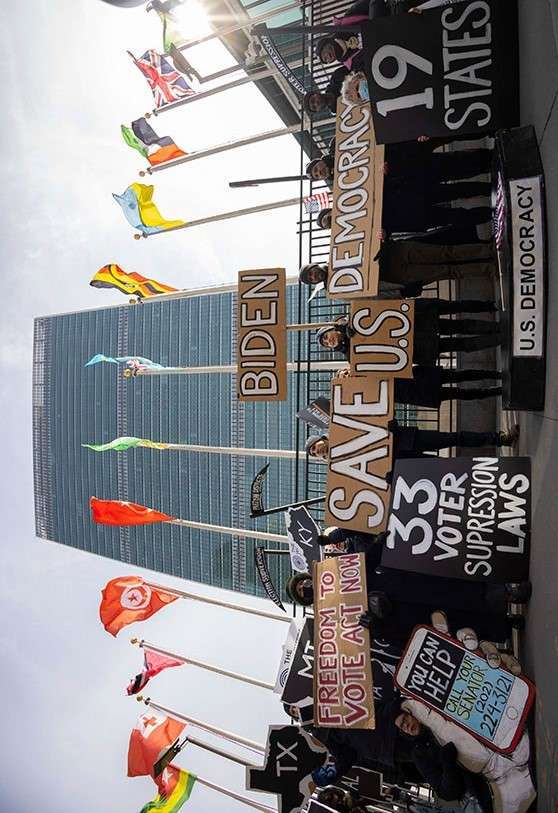
The US printing presses don't stop either. Not by chance, the WSJ's Saturday Essay prior to the 'Summit for Democracy' was 'Containment Can Work Against China, Too'. It invokes the diplomat George F. Kennan, father of 'Containment', the strategy with which the US defeated the Soviet bloc.
Containment was based on the premise that traditional Russian insecurity, combined with communist ideology, made the USSR hopelessly hostile to the free world (there were those who insisted on bringing the Kremlin back to "good manners" at the time). For Kennan, while the Kremlin could not be brought back, it could be dissuaded.
Stalin knew that the USSR was weaker than the US. But he was blindly convinced that historical forces alone would lead communism to victory. Therefore, he would not attack rashly. For this reason, Kennan reasoned, it was only necessary to "contain" the USSR, "applying counter-force with vigilance and skill at a constantly shifting series of geographical and political points". If the Soviets failed to expand, then history would prove him right, and the web of lies that was the USSR would fall of its own weight. The 'doves' of the time deplored the constant danger of 'Containment', while the 'hawks' abhorred the semi-permanent stalemate of the strategy.
The differences between the USSR and China are not lost on the author. Nor are the similarities, "the goal should be to prevent China from upsetting the balance of power...and its ability to shape the international order that emerged from the US victory in the Cold War...this rival, like the USSR before it, is driven by a combination of resentment and ambition - nationalism, intense autocratic insecurity, and the grandiose designs of an emperor for life". Let our esteemed readers judge whether the 'Summit of Democracy' can be considered such a grandiose design.
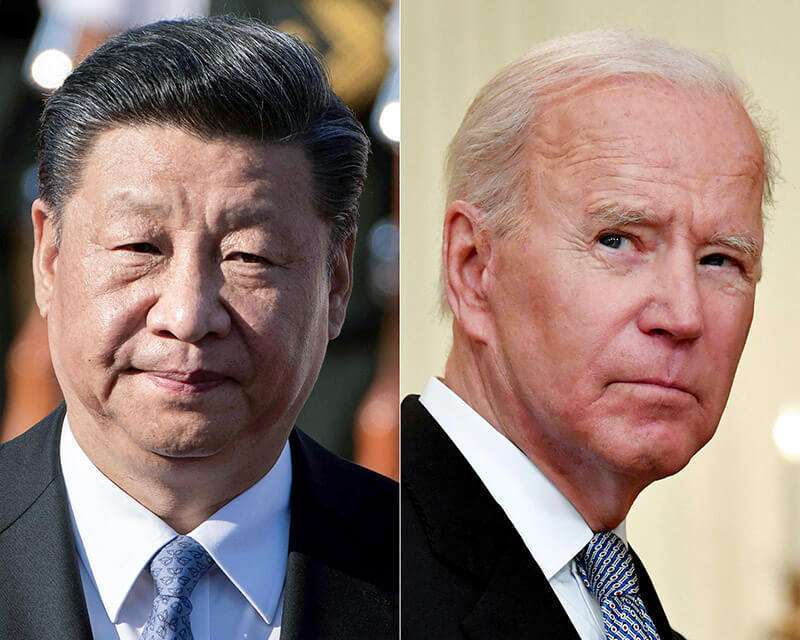
For Kennan, the Protestant theologian and political thinker Reinhold Niehbur "was the father of us all". At that time, the US was brimming with faith in the superiority of its values and political system. Can the same be said today? The 'Containment' was backed by a broad social consensus with hardly any fissures. If a new 'Containment', mutatis mutandis, were the optimal strategy for the US, then in order to hold out against China, the United States would have to believe in it and believe in it a lot.
Why do we go to war? It is one of the perennial questions of political science. James Fearon's now classic article 'Rationalist Explanations for War' (1995) questioned some of the traditional answers.
One is that war is fought when states miscalculate their relative strengths based on inaccurate information. But for Fearon, misinformation is a necessary but not sufficient condition for war. The traditional response overlooks that states are incentivised to share information about their strength and red lines. The rational, economic thing to do is to lay all the cards on the table, avoid a miscalculation that leads to war, and negotiate a solution in advance that saves both sides the cost of war, which is nothing short of inefficient.
If we can negotiate and keep the balance, then why are we still fighting, Fearon insists. The cause of war cannot be (bad) information, but rather that which prevents its dissemination. For Fearon this is the incentives of the parties to exaggerate their power and determination and to hide their weakness in order to extract the best terms from a negotiation (incentives to misrepresent information is how he puts it).
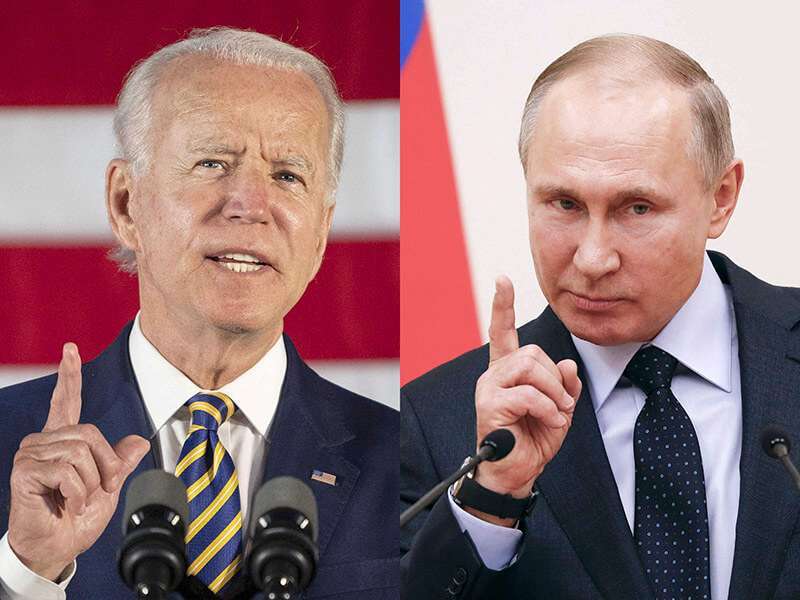
We can take it for granted that Washington and Beijing have private channels for sharing information on their respective borders. For example, Bush Sr. publicly bragged to Beijing in the aftermath of Tiananmen, but reaffirmed his confidence in China's opening in 'petit comité' - an opening that never came, needless to say. However, any obfuscation of these channels can lead to error and catastrophe on a planetary scale when two superpowers are in geopolitical competition halfway around the world.
Kennan came to represent the WASP (White Anglo Saxon Protestant) elite - now virtually extinct - winning their hearts and minds. But in reality he was always an outsider. His rise to the upper echelons of East Coast politics began at Princeton, where he enlisted in the footsteps of another famous midwesterner who lived in anguish on the margins of "society": Scott F. Fitzgerald, author of The Great Gatsby, but above all of This Side of Paradise. Kennan identified with his protagonist, Amory Blaine, based on Fitzgerald himself. Blaine leaves Princeton. He is left by his beloved for a more made or less broken man. He ends the novel wandering, until a rich stranger offers to pick him up in his car. They talk and - with nothing left to lose - Blaine embraces socialism. He admits to improvising. "I know myself, but that is all," he concludes.
Kennan was influential in Latam, but not as prescient as he had been in Eurasia. On the only trip he made to the region in 1950, he relied on the prejudices of his ambassadors stationed there, in the midst of early Cold War anti-communist paranoia, instead of doing what he did best: observing and analysing the social fabric and then describing it in masterful prose. After the trip he laid out his corollary to the Monroe Doctrine: "We cannot be too dogmatic about the methods by which local communists should be dealt with".
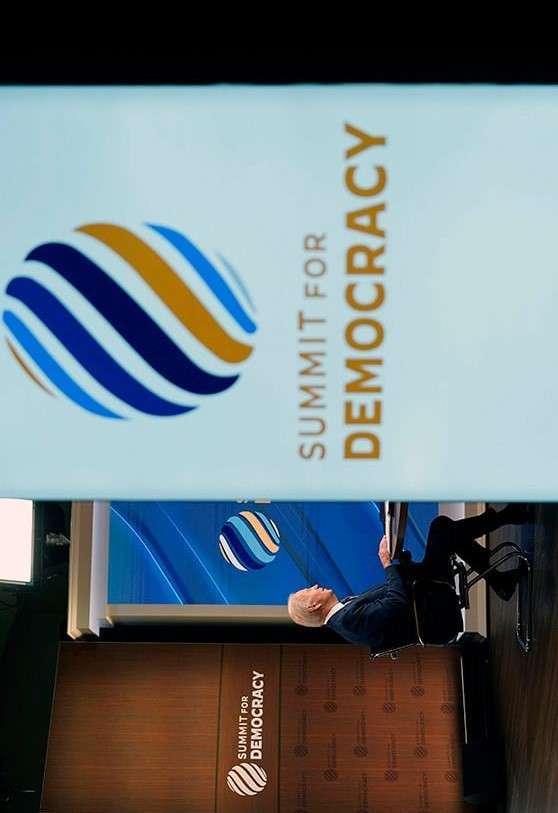
Perhaps he is redeemed by his memoirs. In them he retracts his hasty judgement of Latin America. "Despite the emphasis in these passages [he quotes from his mid-century work] on the tragic element of Latin American civilisation, I have in another sense a high opinion of it, and even see in it humanity's best hope for the future...the South American continent may one day prove to be the last stronghold and custodian of the humanist and Christian values which the men of Europe and North America have discarded."
El Americanista is an independent bulletin for understanding the political and economic keys to Latin America. If you would like to receive it weekly in your inbox, you can subscribe for free at elamericanista.com.

